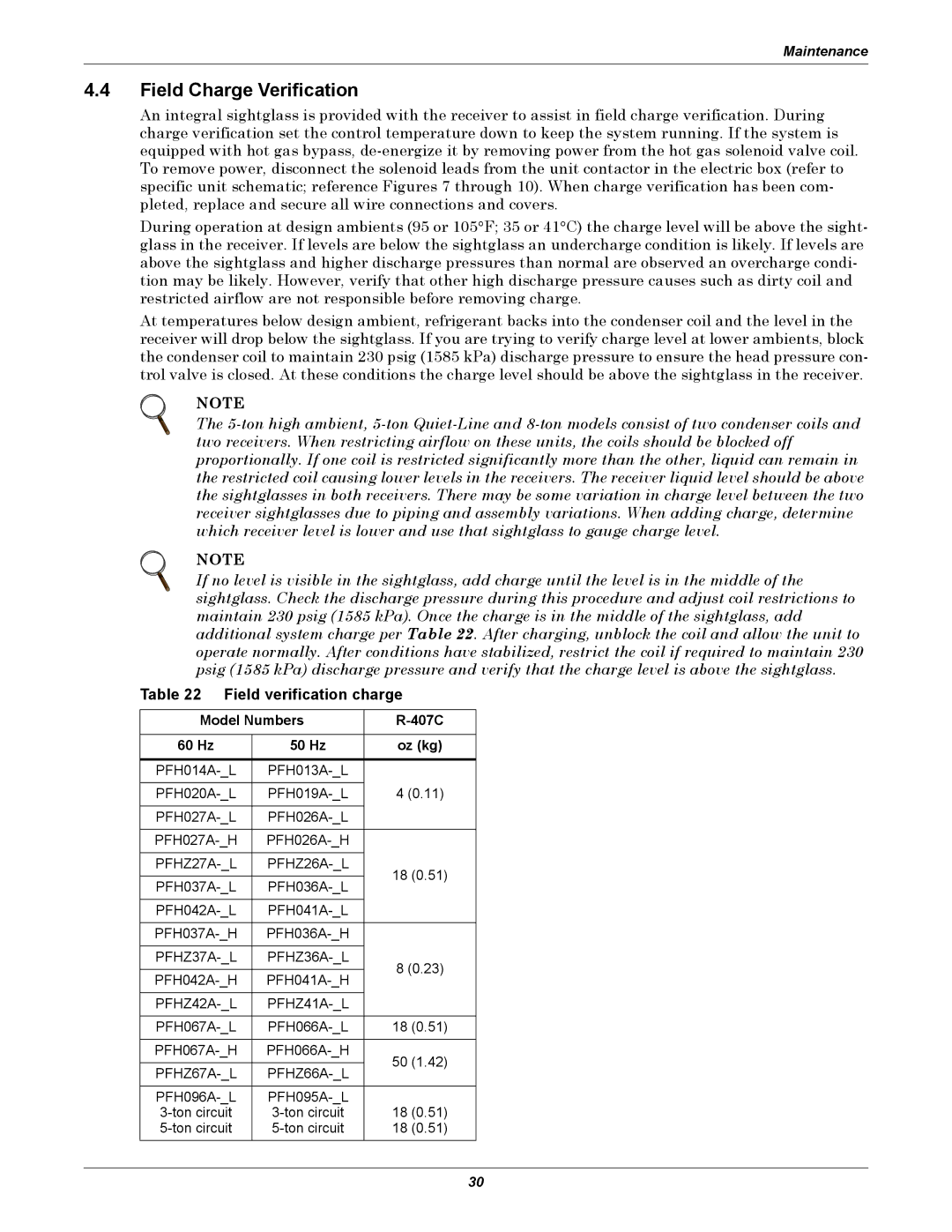
Maintenance
4.4Field Charge Verification
An integral sightglass is provided with the receiver to assist in field charge verification. During charge verification set the control temperature down to keep the system running. If the system is equipped with hot gas bypass,
During operation at design ambients (95 or 105°F; 35 or 41°C) the charge level will be above the sight- glass in the receiver. If levels are below the sightglass an undercharge condition is likely. If levels are above the sightglass and higher discharge pressures than normal are observed an overcharge condi- tion may be likely. However, verify that other high discharge pressure causes such as dirty coil and restricted airflow are not responsible before removing charge.
At temperatures below design ambient, refrigerant backs into the condenser coil and the level in the receiver will drop below the sightglass. If you are trying to verify charge level at lower ambients, block the condenser coil to maintain 230 psig (1585 kPa) discharge pressure to ensure the head pressure con- trol valve is closed. At these conditions the charge level should be above the sightglass in the receiver.
NOTE
The
NOTE
If no level is visible in the sightglass, add charge until the level is in the middle of the sightglass. Check the discharge pressure during this procedure and adjust coil restrictions to maintain 230 psig (1585 kPa). Once the charge is in the middle of the sightglass, add additional system charge per Table 22. After charging, unblock the coil and allow the unit to operate normally. After conditions have stabilized, restrict the coil if required to maintain 230 psig (1585 kPa) discharge pressure and verify that the charge level is above the sightglass.
Table 22 Field verification charge
Model Numbers |
| ||
|
|
| |
60 Hz | 50 Hz | oz (kg) | |
|
|
| |
| |||
|
|
| |
4 (0.11) | |||
|
|
| |
| |||
|
|
| |
| |||
|
|
| |
18 (0.51) | |||
|
| ||
| |||
|
|
| |
| |||
|
|
| |
| |||
|
|
| |
8 (0.23) | |||
|
| ||
| |||
|
|
| |
| |||
|
|
| |
18 (0.51) | |||
|
|
| |
50 (1.42) | |||
|
| ||
| |||
|
|
| |
| |||
18 (0.51) | |||
18 (0.51) | |||
30
